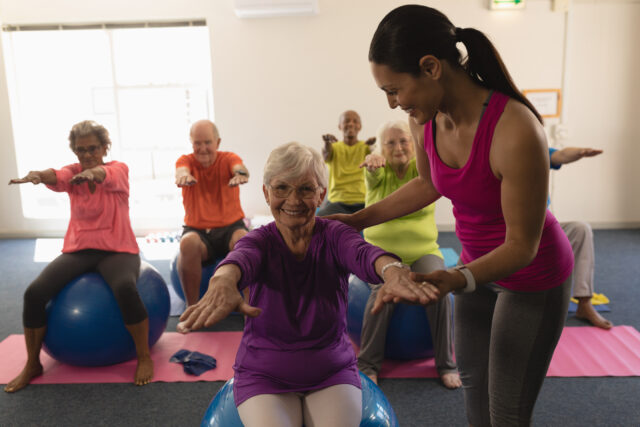As we age, the desire to maintain cognitive sharpness becomes increasingly paramount. The prospect of maintaining memory, learning capabilities, and overall brain health is a common concern among seniors. Fortunately, a powerful ally exists in the pursuit of cognitive vitality: exercise.
The Cognitive Decline Conundrum
Cognitive decline is a natural part of the aging process, which is why lifestyle interventions are essential to mitigating impact. Yet research consistently demonstrates that physical activity can significantly influence cognitive function, memory retention, and even the structure of the brain itself.
The Memory-Muscle Connection
Just as muscles grow stronger with exercise, the brain benefits from regular mental stimulation and physical activity. When it comes to memory and learning, exercise acts as a catalyst for brain-derived neurotrophic factor (BDNF), a protein crucial for cognitive function. BDNF promotes the growth of new neurons and synapses, enhancing neural plasticity—the brain’s ability to adapt and learn. By engaging in aerobic exercises such as walking, swimming, or cycling, seniors can bolster their memory and learning capacities.
Blood Flow: The Lifeline for Brain Health
Another crucial point is exercise’s ability to enhance blood flow. Physical activity stimulates the circulatory system, increasing blood flow to the brain. This surge in circulation delivers essential oxygen and nutrients while removing toxins, thereby nourishing brain cells and supporting their optimal function. Improved blood flow also reduces the risk of cardiovascular diseases, such as stroke.
Exercise: A Fountain of Youth for the Brain
The benefits of exercise extend beyond immediate cognitive improvements; they also contribute to long-term brain health. Studies have shown that seniors who engage in regular physical activity exhibit a reduced risk of developing neurodegenerative conditions like Alzheimer’s disease and dementia. Moreover, exercise can slow the progression of existing cognitive decline, enabling seniors to maintain their independence and quality of life.
Finding the Right Fit
Embarking on an exercise regimen tailored to individual needs and abilities is key for seniors looking to enhance their cognitive health. Low-impact activities like yoga, tai chi, and water aerobics offer gentle yet effective ways to stay active while minimizing the risk of injury. Strength training exercises, using light weights or resistance bands, can also provide significant benefits by improving balance, coordination, and muscle mass.
Integrating Exercise into Daily Life
Incorporating exercise into daily routines doesn’t have to be daunting. Simple lifestyle changes, such as taking short walks, gardening, or dancing, can yield substantial cognitive benefits. Group fitness classes or social activities that involve physical movement offer additional incentives for seniors to stay active while fostering social connections—a crucial component of overall well-being.
A Brighter Future Through Movement
In the pursuit of cognitive vitality, exercise emerges as a formidable ally for seniors. By promoting memory, enhancing learning capabilities, and improving blood flow to the brain, regular physical activity serves as a potent elixir for maintaining mental acuity and preserving brain health. Embracing a lifestyle that prioritizes movement not only unlocks the potential for sharper cognitive function but also cultivates a sense of empowerment and well-being that transcends age. As the adage goes, “Use it or lose it”—and when it comes to the brain, exercise is undoubtedly one of the most effective ways to ensure it remains sharp and resilient well into the golden years.


